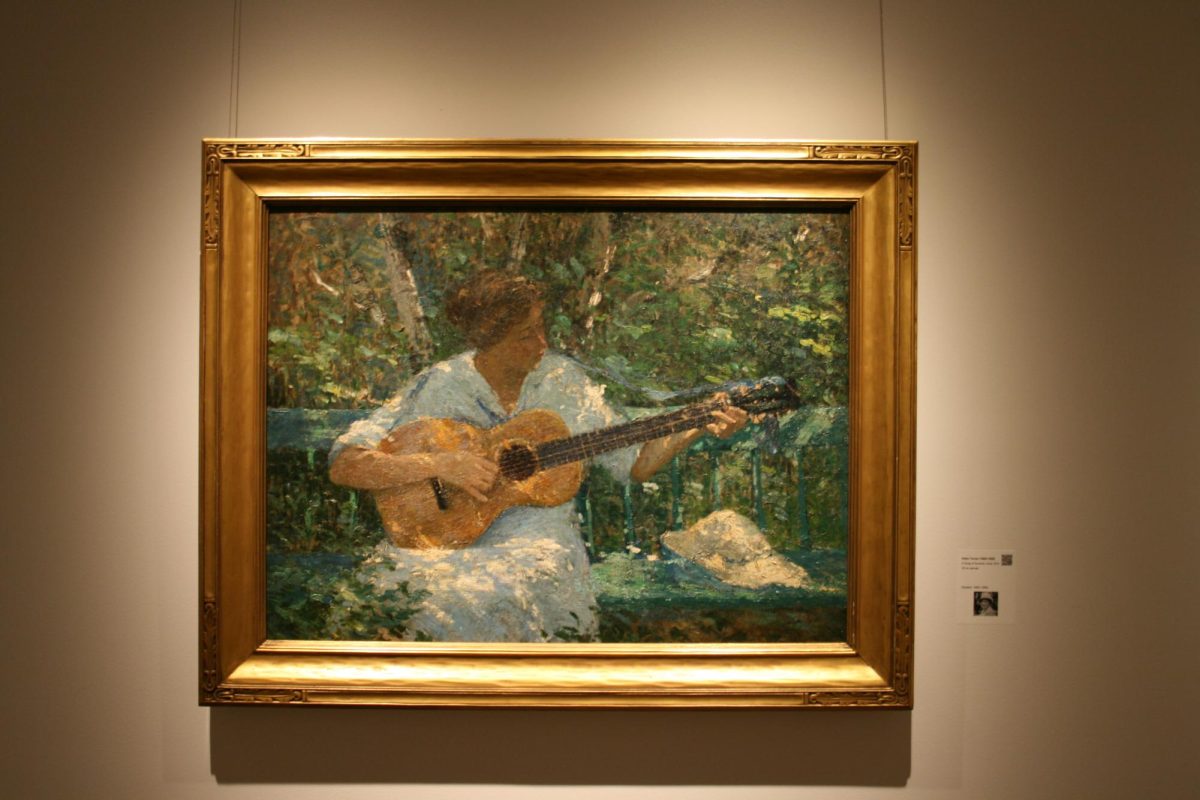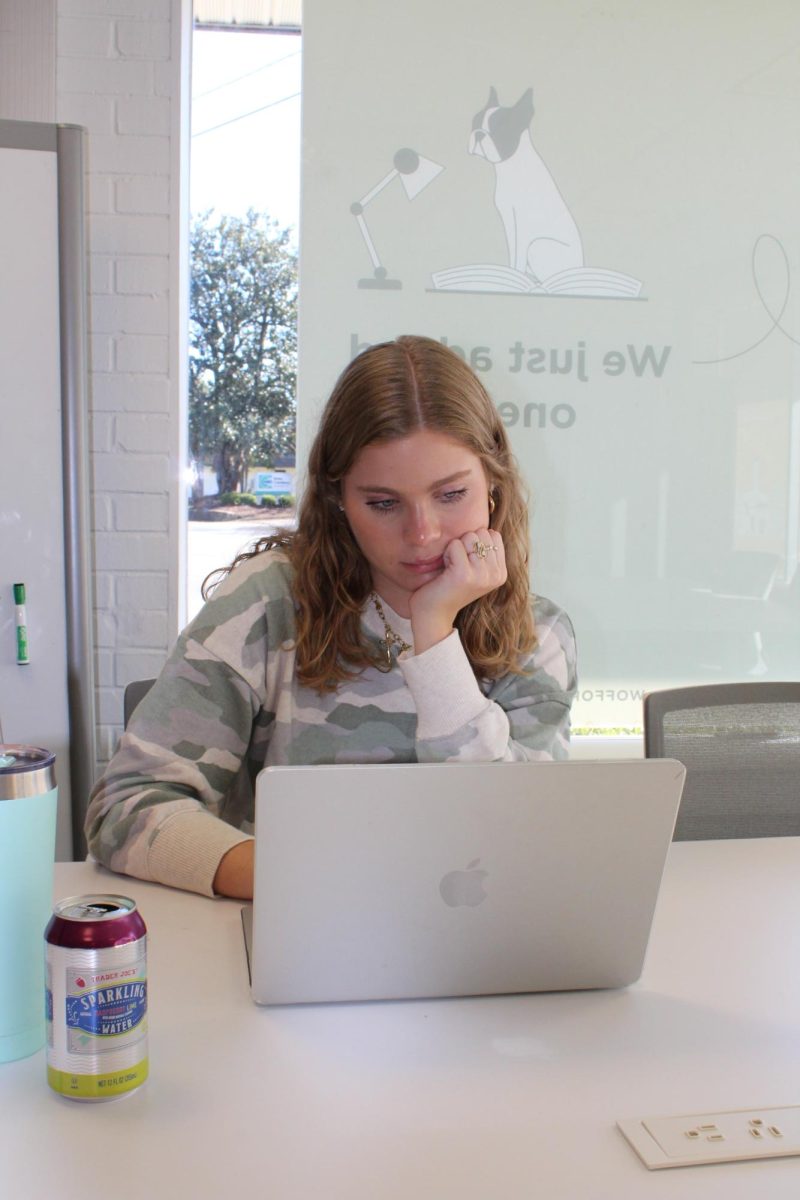PRIVATE COLLEGE TAKES A STAND IN THE NAME OF ACADEMIC FREEDOM —
Last spring, when the South Carolina House of Representatives voted to cut $70,000 in the budgets of College of Charleston and USC Upstate, South Carolina was a warzone between public academic freedom and what some people are claiming was a censorship by the government. The series of events that led to this point are more complex than tightening a budget. The cuts were in response to gay-themed books being assigned as required reading to students at the colleges. In that same spring, USC Upstate announced they would be closing the Cen- ter for Women and Gender Studies (CWGS) that hosted a gay-themed conference. At the conference, theatre artist Leigh Hendrix was supposed to perform her show, “How To Be A Lesbian in 10 Days or Less,” but the performance was canceled by the college. The legislators have now granted the colleges money that will go toward funding courses on the Constitution and other U.S. documents.
It was in the aftermath of this controversy that Wofford booked Hendrix for Sept. 9, taking a visible stance against the government’s actions.
The one-woman-show “How To Be A Lesbian in 10 Days or Less” portrays different characters experiencing moments from hilarity to personal tragedy. The most well-known of the characters, Butchy McDyke, is a motivational speaker and lesbian expert who helps ladies across the nation become lesbians in 10 days or less, guaranteed. While the show was received with a standing ovation by Wofford’s audience, other people elsewhere have found the play troubling, starting with its suggestive name.
“It seems to be the title that gets people, this idea that it is a how-to-guide,” says Hendrix. “The idea of how ridiculous it would be if there was a self-help seminar called ‘How To Be A Les- bian in 10 Days or Less’ was the inspiration for the show. I thought that was funny and then the character of Butchy McDyke as the leader of this seminar emerged from there.”
Hendrix’s show led to multiple outcries last spring at USC Upstate. South Caro- lina residents complained that their taxpayer dollars were supporting and promoting ideas that they found morally reprehensible. Several government officials, including State Senator Mike Fair (R), believed the satirical play was a platform to literally recruit women into the homosexual lifestyle.
The backlash resulted in budget cuts for USC Upstate and on May 12 the university announced that the Center for Women and Gender Studies (CWGS)—a space on campus for students to meet, hold events and attend upper level courses— would close July 1, right after the controversy over Hendrix’s performance. Since April, the advisory board at USC Upstate has changed their explanation astowhyCWGSwastobe closed. USC Upstate Chancellor Tom Moore told The State newspaper that the decision to close the CWGS was not meant to be “punitive or a response to external pressure” but was meant to promote consistency in administering and supporting other programs on campus.
However, when the Old Gold and Black contacted Fair, he told a different story.
“[The Upstate Advisory Board] have been chatting with the chancellor about similar performances in- volving the same issue for a number of years I was told,” says Fair. “My concern had to do with the perception that USC-U was promoting the behavior as normal. My understanding is the Administration acted decisively and they acted quickly to set the record straight as to promoting a questionable lifestyle. They no longer do that.”
Efforts to close the CWGS did not go through, however. According to Dr. Lisa Johnson, the director of CWGS, the campus fought back to keep the center open.
“Student and faculty protests led to the delay of this decision,” explains Johnson. “Many of us are hopeful that it will remain open and continue to operate as one of the most vibrant elements of our campus.”
While the center has hosted gay-themed events, Johnson assures that neither she nor the center are trying to recruit anyone into an ideology.
“I am not interested in changing the views of people who hold anti-gay beliefs. My work is about creating space for LGBT students to feel visible and safe. They matter,” says Johnson.
At Wofford, Dr. Sally Hitchmough, an associate professor in the Department of English who started the gender studies program at Wofford alongside Dr. Karen Goodchild, believes gender studies can aid students in academics and more.
“For me, it’s about preventing suffering. It’s always about preventing suffering. You have a high suicide and depression rate in homosexual adolescents, and that is real suffering from a closed conversation,” says Hitchmough. “Gender stud- ies help people open their eyes.”
Untouchable by government cuts as a private institution, Wofford felt it was necessary to take a stand against what they claim was censorship last spring.
“We felt that Wofford had not only an opportunity but an obligation to demonstrate to the state and the country that art in South Carolina cannot and should not be legislated and that Wofford College is a bastion of academic freedom and that Wofford College is a bastion of basic democratic values and ideals,” says Dr. Mark Ferguson, department chair and director of Wofford theatre, at the academic panel.
Since the controversy, Hendrix says the meaning behind her show has changed.
“I didn’t make the piece as politics, not directly. I made a show that first I thought was funny and also a little earnest that was maybe going to be a show only queer folks wanted to see; maybe even only gay ladies. I think the show res- onates because it is about the attempts and failed attempts at defining oneself…I want people to have fun, to laugh, to maybe ask a few questions of themselves and of the world.”
During the academic panel, senior Courtney Parsons, president of Wofford’s gay-straight alliance Spectrum, stressed the importance of having an open conversation of LGBT issues on campus.
“Events like this bring LGBT issues into the spotlight. This is exactly what Spectrum strives to do on Wofford’s campus. We are by no means trying to get everyone to change their opinions,” she says.
For the second year in a row, Wofford has been placed on Princeton Review’s list of the nation’s most LGBT unfriendly universities. To Parsons, this ranking does not reflect the atmosphere on campus.
“Wofford is not hateful or aggressive, but rather apathetic. If there was a list of the most LGBT apathetic schools, Wofford would deserve a spot, no question, but we are hardly unfriendly.”
For those people hurt in the process, Hendrix’s show has become a symbol of what they hope to accomplish.
“How many students sat in the audience quietly recognizing their own fears in her words?” reflects Johnson. “How many left feeling less alone, less broken?”
The complexity of these issues remains in the air for the time being, affecting the lives of legislators, residents and students of South Carolina and the country.


























